МИНИСТЕРСТВО ЛЕСНОГО ХОЗЯЙСТВА
И ОХРАНЫ ОБЪЕКТОВ ЖИВОТНОГО МИРА НИЖЕГОРОДСКОЙ ОБЛАСТИ
Государственное бюджетное профессиональное
образовательное учреждение Нижегородской области
«КРАСНОБАКОВСКИЙ ЛЕСНОЙ КОЛЛЕДЖ»
(ГБПОУ НО «КБЛК»)
МЕТОДИЧЕСКИЕ УКАЗАНИЯ
по дисциплине «Иностранный язык (Английский язык)»
для студентов I курса 8 часть
Тема 2.1 Современный мир профессий. Проблема выбора профессии. Альтернативы в продолжении образования. Подготовка к выпускным экзаменам. Роль иностранного языка в планах на будущее. Место иностранного языка в повседневной жизни и профессиональной деятельности в современном мире.
Тема 2.2 Промышленные технологии
для специальности 23.02.07 «Техническое обслуживание
и ремонт двигателей, систем и агрегатов автомобилей»
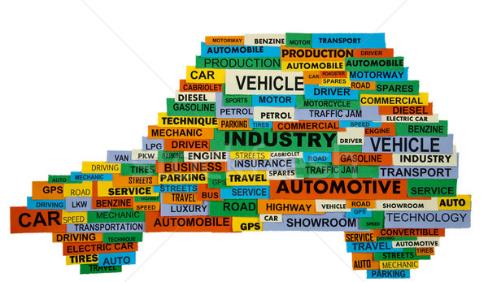
Составили:
преподаватели
иностранного языка
Воронина М.В.,
Булкина Т.А.
Красные Баки
2024 год
Lesson 1
Features of training by profession or specialty
№1. Read and translate the text:
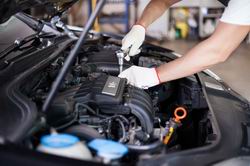 Every year the number of cars produced is growing, they are becoming more and more affordable, and we can say with confidence: "A car is not a luxury, but just a means of transportation." Therefore, more and more specialists are needed to ensure the smooth operation of our vehicles. That is why the specialty "Maintenance and repair of engines, systems and assemblies of cars" can be called one of the most promising today. The production of automobiles and the complication of mechanisms contributed to the emergence of narrower specialties. Now specialists in this industry are among the most sought after and highly paid. And in many ways, this specialty is very popular among young people who prefer to have a stable job and confidence in the future.
Every year the number of cars produced is growing, they are becoming more and more affordable, and we can say with confidence: "A car is not a luxury, but just a means of transportation." Therefore, more and more specialists are needed to ensure the smooth operation of our vehicles. That is why the specialty "Maintenance and repair of engines, systems and assemblies of cars" can be called one of the most promising today. The production of automobiles and the complication of mechanisms contributed to the emergence of narrower specialties. Now specialists in this industry are among the most sought after and highly paid. And in many ways, this specialty is very popular among young people who prefer to have a stable job and confidence in the future.
 The specialty " Maintenance and repair of engines, systems and assemblies of cars" at Krasnobakovskiy College makes it possible to obtain a specialist qualification, which allows you to work in many areas. Students gain knowledge and skills in the field of organization of production works, maintenance, operation, repair of cars, study the features and basics of body repair, engine repair, chassis, management of a division of the organization, etc.
The specialty " Maintenance and repair of engines, systems and assemblies of cars" at Krasnobakovskiy College makes it possible to obtain a specialist qualification, which allows you to work in many areas. Students gain knowledge and skills in the field of organization of production works, maintenance, operation, repair of cars, study the features and basics of body repair, engine repair, chassis, management of a division of the organization, etc.
To be successful as a vehicle maintenance and repair technician, students must have the following professionally important qualities: discipline and responsibility; the ability to plan one's activities; attention to detail; good vision and eye (linear and volumetric); fine muscle and auditory sensitivity; mobility, coordination and accuracy of movements of the hands and fingers; consistency, associativity and objectivity of thinking; well-developed mnemonic abilities.
№2. Are these statements true or false? Correct the false once:
1. Specialists’ task is to organize activities aimed at destroying the forest fund
2. The rules of forest use are regulated by state laws.
3. The demand for the profession of a specialist in forestry and forestry is low.
4. Forest park zones and protected natural areas are of great importance.
5. Our country has some of the smallest forest territories in the world.
№3. Make up general questions:
1. College trains specialists of forestry and forest park management of our country.
2. These specialists are responsible for the development and maintenance of forests.
3. Russia has some of the largest forest territories in the world.
4. Specialists organize the protection and use of forest funds.
№4. Study the material “Gerund”
Герундий — это неличная форма глагола, обладающая признаками как глагола, так и существительного. Подобной формы в русском языке нет.
Как и глагол, герундий имеет формы времени и залога, может определяться наречием.
| Форма | Действительный залог | Страдательный залог |
| Indefinite | reading | being read |
| Perfect | having read | having been read |
На русский язык герундий переводится существительным, неопределенной формой глагола, деепричастием, глаголом в личной форме или придаточным предложением.
В предложении герундий может употребляться в следующих функциях:
1. Подлежащего: Your coming now and saying "I'm her father" doesn't change my feellings. - To, что вы пришли сейчас и говорите: «Я - ее отец»,- не меняет моих чувств.
2. Именной части сказуемого: Seeing is believing. - Увидеть - значит поверить.
3. Дополнения (прямого, предложного): The teacher has aimed at teaching students to speak in correct English. - Учитель поставил цель научить учащихся правильно говорить на английском языке.
4. Определения: The difficulties of rebuilding the plant were successfully overcome. - Трудности, связанные с перестройкой завода, были успешно преодолены.
5. Обстоятельств: You can help him by supporting him. - Вы можете помочь ему тем, что поддержите его.
Глаголы с предлогами, после которых употребляется только герундий:
aim at, accuse of, apologize to smb for smth, (dis)approve of, be afraid of, be angry for, be aware of, be bored with, be busy, be capable of, be clever at, be disappointed at, be engaged in, be famous for, be fond of, be good/clever at, be grateful for, be guilty of, be interested in, be keen on, be pleased at, be proud of, be responsible for, be slow at, be sorry for, be sure of, be surprised at, be worried about, be worth of, blame for, complain about, congratulate smb on, depend on, discourage smb from, excuse for smth, feel like, forget about, forgive smb for, get/be used to, insist on, look forward to, object to, persist in, praise for, prevent from smth, succeed in, suspect of, thank for, think of/about, worry about.
№5. Translate into Russian
He always suggested staying here.
I proposed having party at the beach.
I promised to care for the cat but I’m not much good at babysitting.
He is capable of standing on his head and playing the saxophone.
You’d better start digging the garden.
Writing letters is more boring than phoning.
It is not worth helping him do this job.
I’m very excited about attending tomorrow’s game.
№6. Translate into English
Мой дядя бросил курить и сейчас предпочитает есть.
Пожалуйста, прекратите шептаться.
Мне нравится быть одному. Я никогда не чувствую себя одиноко.
Я перешел дорогу, не посмотрев.
Подумай хорошо, прежде чем принять решение.
№7. Use appropriate prepositions: Example: I’m looking forward …. (see) you tonight. - I am looking forward to seeing you tonight.
His teacher insisted … (speak) to his parents.
Are you accusing me … (steal) your money?
You’d better apologize … (be) rude yesterday!
I disapprove … (smoke) in public places.
She never forgave him … (betray) their marriage.
Susan succeeded … (pass) her CAE.
He objects … (copy) from other students at the exam.
His poor health prevented him … (serve) in the army.
№8. Complete the sentences using the prompts in brackets.
Model: (help) I thanked my friend… - I thanked my friend for helping me the homework.
(watch) The examinees complained…
(graduate) I congratulated her …
(receive) I look forward…
(lie) I can’t approve…
(trust) I can’t blame you …
(disturb) Most people object …
Lesson 2
English language in the world
№1. Read and translate the text:
At the present time foreign languages are socially demanded. Foreign languages are needed as the main and the most efficient means of information exchange of the people of our planet. The question of learning foreign languages is very important today. English is just one of 6,000 languages in the world. One billion people speak English. That’s 20 per cent of the world population. It is also one of the leading languages in the world. About 350 million people speak English as their first language. About the same number use it as a second language. It is the language of aviation, international sport and pop music.
English is the official language in 44 countries, where it is used in education and administration. They are Great Britain, Canada, the United States of America, Australia, New Zealand and some other countries. In many countries it is the language of business, commerce and technology. English is the language of modern computing. Nearly 50 per cent of all the companies in Europe communicate with each other in English. 75 per cent of the world's mail is in English, too. Standard English is not completely uniform. There are differences between the national standards in Britain, America and Australia.
Russia is integrating into the world community and the problem of learning English for the purpose of communication is especially urgent today. English is very popular in international business of Russia. It is studied at schools, colleges and universities.
№2. Answer the questions:
What is the role of English among other foreign languages?
How many people speak English?
Why has English become a world language?
Where is English an official language?
Why are millions of people learning English today?
Why do young people want to learn English?
Why do you learn English?
What is necessity of learning English for a specialist?
In what careers (jobs) can languages be a tremendous advantage?
What is the best way to learn a language?
What is the most important thing for you in learning a foreign language?
What is your mother tongue?
№3. Write sentences.
Example: Ann is from Spain. Her nationality is Spanish. Her mother tongue is Spanish.
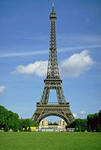
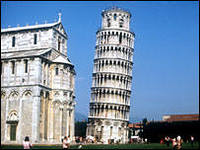

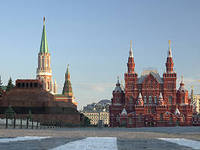
Theo Franchesco Jane Ivan

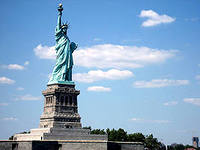


Laila Barbara Paula Takashi
№4. Use the dictionary and write the nationalities:
Russia, Australia, Canada, the USA, England, Scotland, Wales, Ireland, Germany, Switzerland, China, Mexico, Sweden, Poland, Italy, Japan, Brazil, Spain, France, Turkey.
№5. Make sentences according to the model:
Tokyo is the capital of Japan.
Minsk, Riga, Paris, Vilnius, Rome, Dublin, Jerusalem, Madrid, Sofia, Warsaw, Budapest, Athens, Washington, Havana, Teheran, Baghdad, Helsinki, Oslo, Stockholm.
№6. Study the material:
Gerunds and Infinitives act like verbs. They can follow adjectives and other verbs.
| Verbs which are usually followed by a Gerund: acknowledge, admit, adore, anticipate, appreciate, avoid, celebrate, confess, contemplate, delay, deny, describe, detest, discuss, dislike, dread, endure, enjoy, fancy, finish, imagine, involve, keep, justify, mention, mind, miss, omit, postpone, practise, quit, recall, recommend, regret, report, resume, risk, suggest, tolerate, understand. | Verbs which are usually followed by an infinitive: afford, agree, appear, arrange, ask, attempt, care, choose, claim, come, consent, dare, decide, demand, deserve, determine, elect, expect, fail, get, hate, help, hesitate, hope, hurry, intend, learn, manage, mean, need, offer, plan, prepare, pretend, promise, refuse, resolve, say, seem, tend, threaten, want, wish.
|
| Complex Object |
| 1st
| want, wish, would like, like, hate, desire, expect, know, believe, consider, get, cause | somebody | to+V |
| 2nd
| let, make | somebody | V |
| 3rd
| see, hear, feel, notice, watch | somebody | V (completed action) |
| V-ing (action in progress) |
№7. Complete with a gerund or an infinitive
1. She agreed … (pay) the electricity bill the following week.
2. Hector dislikes … (go) to the opera.
3. Martin admitted … (steal) the money from the safe.
4. Elizabeth didn’t need … (do) the final exams.
5. I regretted … (forget) to call my grandfather for his birthday.
6. Your aunt wished … (visit) Australia in Summer.
7. Please, avoid … (touch) the wires with wet hands.
8. Your friend seems … (be) very busy today.
9. We suggested … (sell) our apartment at the seaside.
10. She postponed … (make) a decision for the new shop.
№8. Open the brackets using verbs with to or without
1. I can’t afford … (stay) at such an expensive hotel.
2. I think I’ll manage … (do) the work tomorrow.
3. You’d better … (spend) the evening at home.
4. Who taught you … (skate)?
5. I can’t make the child … (go) to bed.
6. They agreed … (help) us.
7. I’d rather … (go) to the cinema.
8. I was let … (visit) the sick man.
9. Tell him … (come) at once.
10. Let him … (have a look) at the photo.
№9. Complete the sentences using +ing, infinitive or base form. Translate them:
I have to … now. Sorry. (to go)
I would like … in a hot air balloon on day. (to fly)
When I was younger my parents made me … to church. (to go)
He asked … me. I said yes. (to marry)
I'm cold. I want … home. (to go)
I need … a new computer. This one is so slow. (to get)
I enjoy … parties. (to organise)
Her parents didn't let her … a big party at home. (to have)
I learned … planes when I was in the army. (to fly)
You shouldn't … outside without a hat in winter. (to go)
I used to … a car, but I sold it. (to have)
We are gonna … the flat tomorrow. (to clean)
I don't expect it … tomorrow. (to rain)
I don’t mind … . It’s alright. (to clean)
I started … sick yesterday morning. (to feel)
Lesson 3
Machines and mechanisms
№1. Write out the words (24) and translate them:
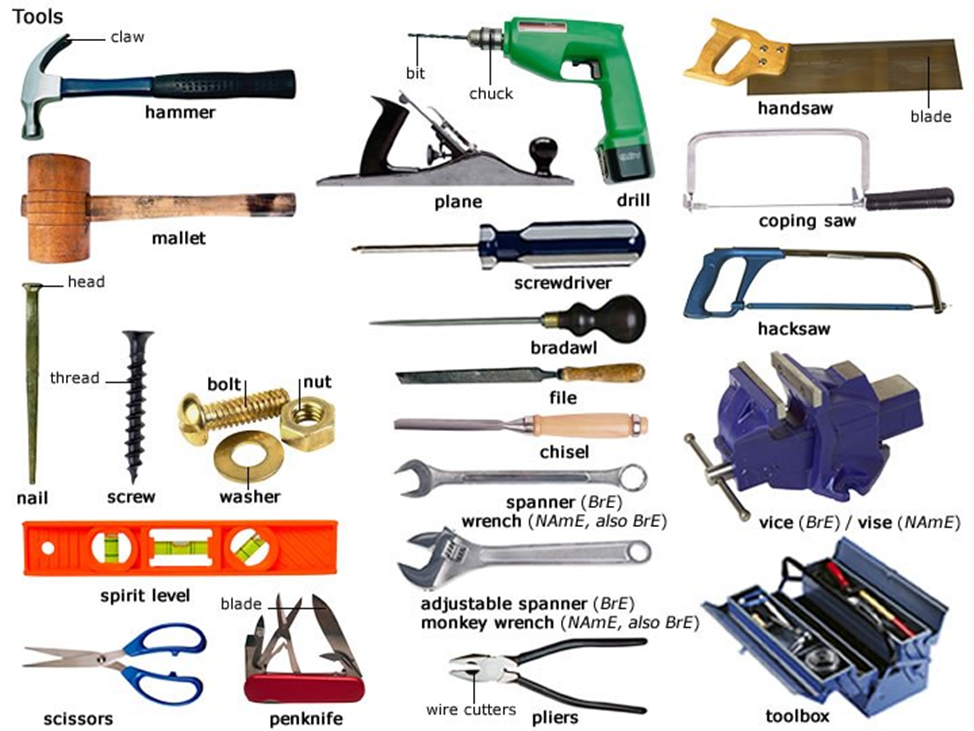
№2. Read and translate the text:
What is Simple Machines?
A machine is something we use to make work easier. We can classify machines as simple machines and complex machines. Simple Machines have few or no moving parts. When you put simple machines together you can get a complex machine. All machines need energy to work.
A simple machine is something that reduces the effort needed to do work. Machines come in all shapes and sizes and can be very basic; a bottle opener, a screw, and even your skeleton, work as machines. They magnify the effort that we apply to a task and enable us to do many things that our muscular strength alone could not manage. The amount of effort saved by using a machine is known as its mechanical advantage. The greater the mechanical advantage of a machine, the less effort is required relative to the load. There are six different types of simple machines: pulley, inclined plane, screw, wheel and axle, wedge and lever.
№3. Complete the sentences:
A) A … is an object with at least one slanting edge. We use it to cut objects.
B) A … uses a Wheel and a rope to lift or lower an object.
C) A … is a circular object that turns around. We use it to lift or move objects.
D) A … is a rigid bar with a support called a fulcrum.
E) An … is a slanting surface that connects a low level with a high level.
F) A … is a type of inclined plane. We use it to hold things together or lift objects.
№4. Complete the sentences using these words:
simple pulley ramp electricity levers resistance
A) When doing work, a lever has 2 forces: an effort and a …
B) A … is an inclined plane used to lift and lower objects.
C) A … has a wheel, an axle and a rope.
D) … machines have few parts.
E) The handlebar and pedals on a bike are …
F) Many complex machines use energy from … to work.
№5. Write the name of the cars:
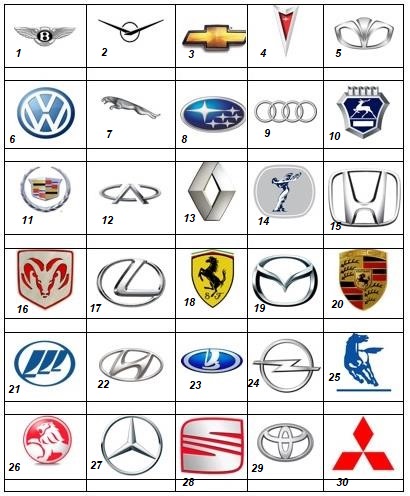
№6. Match the words with the definitions.
headlight engine hood windshield wiper windshield window trunk taillight steering wheel horn dashboard gas pedal / throttle clutch brake (pedal) | a) A folding cover on a car b) One of the large lights at the front of the vehicle c) The part that produces power to make it move d) One of the two rear lights at the back of a vehicle e) A space or an area of glass in the wall of a building or vehicle that lets in light f) A piece of glass or plastic placed at the front of a car to protect the passengers or drivers/riders g) The part at the back of a car where you can put tools, luggage h) A long thin piece of metal with a rubber edge that moves across a windscreen to remove rain i) A wheel that you turn to control a car j) The part in front of the driver that has the controls in it k) The signal at a car you use to make a loud sound as a signal of warning l) The pedal you press to change gear or shift m) The pedal you press with your foot to make the car go faster n) The pedal you press to make the car stop |
№7. Choose the right variant of the verb “be”:
1) I … a student of Forest college.
a) am b) is c) are d) were
2) There … some English books on the table.
a) is b) will be c) were d) are
3) There … very many mistakes in your last dictation.
a) are b) will be c) were d) is
4) Where … your car?
a) am b) is c) are d) were
5) Her favourite seasons … spring and summer.
a) am b) is c) are d) was
6) There … a conference next week.
a) is b) was c) will be d) were
7) … there a cupboard in the bedroom?
a) Are b) Will be c) Is d) Was
8) His hair and ears … dark.
a) am b) is c) was d) are
№8. Choose the right variant of plural noun:
1) His both sons were … .
a) fisherman b) fishermans c) fishermen d) fishermens
2) I want to see … in the zoo.
a) deer b) deers c) deeres d) deeries
3) She injured her both … last week.
a) foot b) foots c) feet d) feets
4) The store was overrun with rats and … .
a) mouse b) mouses c) mice d) mices
№9. Choose the right variant:
1) I have … information about this person.
a) many b) was c) were d) much
2) Olga likes to put … sugar in the coffee.
a) few b) little c) small d) big
3) How … people are there in the food store?
a) many b) much c) any d) some
4) I haven’t got … money in the purse.
a) some b) any c) was d) were
Lesson 4
Industrial equipment
№1. Read and translate the text “Hand Tools”:
In mechanical engineering hand tools are widely used. The fitter’s tools firstly include a work bench and a vice. The vice is secured to the table and is used to hold an object for working by a cut or a needle file. The fitter’s working place contains hammers, chisels, pliers, files, spanners, screw drivers, various marking and measuring tools, etc. Cold chisels are used for work on metals which are in a cold state. The cold chisel is used for chipping off, or cutting away, small pieces of metal and also for cutting out works from sheet metal. Pliers are used for gripping or holding small objects by manual operation. The most common type is the plain or straight-jaw type pliers. Among other types of pliers there are round-nosed pliers, gas pliers, pincer pliers, etc.
Other tools may also have several varieties. Files, for example, are divided according to their degree of roughness (по степени шероховатости насечки, а именно по классам точности). There are the following hand files: rasp or rough cuts, bastard cuts, smooth cuts, dead smooth cuts. As to their shape files may be flat, round, half-round, square, three-cornered, etc. Files used for delicate work are called needle files.
Spanners or wrenches are used for tightening up or unscrewing nuts and bolts. There are two chief types of open-jaw spanners: the single-ended and the double-ended. If the bolt head or nut are in position difficult to access ordinary spanners either a box spanner or socket wrench may be used. To serve several sizes of nuts and bolts adjustable spanners, or monkey wrenches are applied.
Among other hand tools used in craftsman’s work there are hand shears, hack saws, drift punches, hand drills, grind stones and others. Besides, in mechanical job the application of thread screwing tools is also required. The tools comprise two forms: for internal thread cutting (screw taps) and for external thread formation (stock and die, screw plate). In addition to hand tools employed by a fitter electric and pneumatic tools are also used. Thus, a hand tool is a device for performing work on a material or a physical system using only hands. To such tools a punch may also belong. A punch is a hard metal rod with a shaped tip at one end and a blunt butt at the other that is usually struck by a hammer. A center punch is typically used as an aid to drilling operations. A center punch forms a small dimple in which the tip of the drill (if it is small) will fit. A prick punch serves an entirely different purpose. A prick punch is primarily used for the purposes of layout. A transfer punch is a punch of a specific outer diameter that is non-tapered and extend the entire length of the punch (except for the tip). It is used to transfer the center of the hole from one surface to another. A pin punch is used as a driving tool to affix a fixture to a rotating shaft. A doming punch is used in conjunction with a doming block to make spheres or hemispheres out of sheets of metal. The punch is generally made of tool steel, but can be made of wood. A drift punch, or drift pin. is used as an aid in aligning bolt or rivet holes prior to inserting a fastener. A drift punch is constructed as a tapered rod, with the hammer acting on the large end of the taper.
№2. Translate the words from the text in the form of Gerund into Russian:
working, measuring, cutting, gripping, holding, tightening, unscrewing, performing, screwing, marking, measuring, inserting.
№3. Translate word combinations into English:
рабочий инструмент, рабочее место, измерительный инструмент, разметочный инструмент, режущий инструмент, затяжная гайка, нарезное приспособление, операция сверления, шаровой кернер, крепежный болт.
№4. Complete the sentences:
1. The first fitter’s tools are …
2. The vice is used to …
3. The cold chisel is used for …
4. Files are divided according to …
5. The different types of files are …
6. According to their shape files may be …
7. Files used for delicate work are called …
8. Spanners (wrenches) are used for …
9. A punch is …
10. A hand tool is a device for …
№5. Insert the proper words into the sentences:
1. (Ручные инструменты) are widely used in mechanical engineering.
2. The fitter’s working place firstly included (верстак) and (тиски).
3. The fitter needs in (отвертки), (стамески) and (напильники).
4. The fitter also needs in (разметочных) and (измерительных инструментах).
5. (Напильники) used for delicate work are called (надфили).
6. (Гаечные ключи) are used for (закрепления) or (раскручивания) (гаек и болтов).
7. (Гаечные ключи) may be (раздвижными) and (нераздвижными).
8. The tool used for (нарезки внутренней резьбы) is called (клупп).
9. The tool used for (нарезки внешней резьбы) is called (винторезная доска).
10. (Кернер) is usually used in (сверлильных) operations.
№6. Choose the right variant of pronoun:
1) This book belongs to me. This is … book.
a) his b) my c) her d) their
2) I need ten minutes to dress ... .
a) me b) mine c) my d) myself
3) Look at that cat! … is so fat!
a) they b) we c) it d) I
4) It is a very good project, but … is better.
a) we b) our c) ours d) us
5) She drive the car … .
a) herself b) himself c) myself d) ourselves
6) I’ll take … books.
a) this b) that c) these d) a
7) … has left a bicycle outside.
a) Anyone b) Someone c) Anything d) Nothing
8) I don't like … He is rude and loud.
a) him b) he c) his d) himself
№7. Choose the right variant:
1) It's half past nine.
a) 8.30 b) 9.30 c) 10.30 d) 9.09
2) It's five to nine.
a) 9.05 b) 21.05 c) 8.55 d) 9.55
3) It's a quarter past twelve.
a) 11.45 b) 12.15 c) 12.45 d) 11.15
4) It's twenty-five to one.
a) 12.25 b) 13.25 c) 12.35 d) 13.35
5) Wednesday is the … day of the week.
a) third b) three c) thirteen d) first
6) February is the … month of the year.
a) two b) twelve c) twenty d) second
7) January is the … month of the year.
a) one b) first c) elven d) third
8) Saturday is the … day of the week.
a) six b) sixth c) sixteen d) sixty
№8. Choose the right variant of adjective:
1) Moscow is one of … cities in the world.
a) beautiful b) more beautiful c) the beautifulest d) the most beautiful
2) Today you certainly look …. than you did yesterday.
a) happy b) happier c) the happiest d) more happy
3) Australia is …. continent in the world.
a) small b) smaller c) the smallest d) the most small
4) He is the …student in our class.
a) good b) the goodest c) better d) best
Lesson 5
Automobile industry
№1. Match the English combinations with the corresponding Russian ones:
| 1. mechanical engineer 2. deal (with) 3. designing cars 4. put into mass production 5. long service life 6. driving safety 7. meet up-to-date demands
8. smooth-acting clutch 9. silent gearbox 10. dependable brakes and steering system 11. subject to tests | a. долгий срок службы b. запустить в массовое производство c. подвергать испытаниям d. плавное сцепление e. отвечать современным требованиям f. иметь дело (с кем-л., чем-л.) g. надежные тормоза и рулевое управление h. безопасность езды (вождения) i. бесшумная коробка передач j. инженер-механик k. конструирование автомобилей |
№2. Read and translate the text:
Specialists in automobile industry deal with designing and manufacturing cars, so they should know that the production of the automobile comprises the following phases:
1) Designing, 2) Working out the technology of manufacturing processes, 3) Laboratory tests, 4) Road tests, 5) Mass production (manufacturing).
Why is it necessary to know all these facts? It is important to know them as before the automobile (car or truck) is put into mass production, it should be properly designed and the automobile must meet up-to-date requirements.
What are these requirements? The automobile must have high efficiency, long service life, driving safety, ease of maintenance and pleasant appearance. In order to obtain all these qualities engineers should develop up-to-date methods of designing cars, using new types of resistant to corrosion light materials. Also, it is important to know computer science because it is intended to shorten the time between designing and manufacturing. Computers offer quick and optimal solutions of problems.
But before the car is put into mass production all its units and mechanisms are tested, first in the plant's laboratory, then the car undergoes a rigid quality control in road tests. Only then the car is put into mass production. Why are these tests required? What qualities are required of the automobile? The modern automobile must be rapid in acceleration, must have smooth acting clutch, silent gearbox, dependable brakes and steering system, as well as pleasant appearance. Also, it must be comfortable and have all conveniences.
№3. Complete the sentences using the information from the text:
1. The cars are subjected to road tests in order…
2. The car must have the following units...
3. The car must have the following qualities...
4. The production of the automobile comprises the following phases…
5. Engineers should develop up-to-date methods of…
№4. Make up comparative and superlative forms of the adjectives and adverbs in the expressions listed below and translate them:
Important properties, pure metals, much experience, new solutions, long service life, good protection, well-known metals, useful devices, high efficiency, bad results, a modern truck, a large team of designers.
№5. Match the logos to the car makes. Where are the car manufacturers from?
BMW, Chery, Chevrolet, Citroen, Ferrari, Honda, Jaguar, Mercedes, Mitsubishi, Peugeot, Renault, Suzuki, Toyota, Volkswagen.
Example: 9 – BMW (Germany)
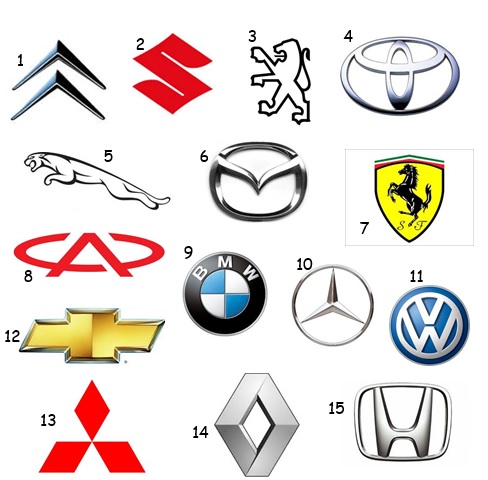
№6. Choose the right variant of Wh-word:
1) … are you sad? – Because my sister is ill.
a) What b) Why c) When d) Where
2) … was the first president of the USA?
a) Who b) What c) Whose d) Which
3) … were you born? In Spain.
a) Where b) Who c) When d) Why
4) … time is the concert? - It’s at 8 p.m.
a) What b) Who c) When d) Why
№7. Choose the right variant of article:
1) London is the capital of … United Kingdom.
a) a b) an c) the d) -
2) Anna has a dog. … dog is very friendly.
a) a b) the c) an d) -
3) I went to … Suzdal last year
a) a b) an c) the c) -
4) I live in … Tverskaya Street.
a) a b) an c) the d) -
5) Give me … apple, please.
a) a b) an c) the d) -
6) Open your books at … page 29.
a) a b) an c) the d) -
7) … Urals are old and not very high.
a) a b) an c) the d) -
8) This is … very beautiful painting.
a) a b) an c) the d) -
№8. Choose the right variant of modal verb:
1) He … read and write in English.
a) can b) should c) could d) might
2) When I was young, I … swim very fast.
a) could b) can c) must d) may
3) You … wear a seatbelt when you are in a car. That’s the rule.
a) shouldn’t b) can c) must d) could
4) … I come in?
a) Should b) May c) Could d) Might
Lesson 6
Competitions of professional skills
№1. Read and translate the text “Agency for the Development of Professions and Skills”:
The Agency was established in 2020 in accordance with the instruction of the President of the Russian Federation Vladimir Putin dated November 23, 2019. It is founded by the Government of the Russian Federation and the Agency for Strategic Initiatives for the Promotion of New Projects. The Agency is the functional successor of the Union "Agency for the Development of Professional Communities and Workers "Young Professionals (WorldSkills Russia)".
Main directions of the Agency:
1) formation of advanced standards of professions and skills based on the best world practices and their implementation in the activities of companies;
2) implementation of international projects in the field of skills and professions development, including the holding of international professional skill championships;
3) formation and development of a partner network of countries and experts, companies, educational organizations;
4) retraining of citizens according to advanced standards of professions and skills.
WorldSkills International (WSI) — an international non-profit association whose goal is to raise the status and standards of professional training and qualifications around the world, popularize working professions through international competitions around the world. It was founded in 1946. Today 80 countries participate in the organization's activities. WSI calls its mission to attract attention to working professions and create conditions for the development of high professional standards. Its main activity is the organization and holding of professional competitions of various levels for young people under the age of 22. Every two years, the WorldSkills World Championship of working professions is held, which is also called the "Olympiad for Workers". Currently, this is the largest competition of its kind.
№2. Are these statements true or false? Correct the false once:
1) WSI is an international non-profit association.
2) The Agency for the Development of Professions and Skills was established in 2002.
3) WSI calls its mission to attract attention to working professions.
4) 8 countries participate in the organization's activities.
5) The WorldSkills World Championship of working professions is held every four years.
№3. Insert the prepositions into sentences
1) It is founded … the Government … the Russian Federation.
2) Skills are based … the best world practices.
3) The Agency was established … accordance … the instruction … the President.
4) Professional competitions of various levels are … young people … the age of 22.
5) Retraining … citizens is … … advanced standards … professions and skills.
№4. Choose the right variant of preposition:
1) I usually come home … three o’clock.
a) on b) at c) to d) in
2) Gary Clench lives … Brighton.
a) to b) at c) in d) on
3) Please, go … the stairs carefully.
a) down b) in c) below d) between
4) Do you sometimes watch TV … the mornings?
a) on b) at c) to d) in
5) The lorry is moving ... the road.
a) onto b) along c) under d) between
6) Our house is … the church.
a) between b) opposite c) under d) above
7) Do you usually go shopping … Saturdays?
a) on b) at c) to d) in
8) Do you sometimes work … night?
a) on b) at c) to d) in
9) You can watch hockey match ... TV today.
a) in b) by c) on d) at
10) He went … the house.
a) in b) between c) into d) at
11) They climbed … the mountain.
a) between b) on c) in d) up
12) Molly is … work at the moment.
a) on b) at c) to d) in
№5. Study the material « Time markers »
|
| Simple | Progressive | Perfect | Perfect Progressive |
| Present | always, usually, often, seldom, rarely, sometimes, every week, regularly, on Monday | now, at present, at the moment, nowadays, this week, right now, in 2 hours, Look! Listen! | since, already, just, yet, recently, lately, today, still, ever, never | for …, all day long, lately, when |
| Past | yesterday, last week, two days ago, in the past | at 2 o’clock yesterday, while…, when…, the whole day | by that day, after, before | for, all day/night, by, when
|
| Future | tomorrow, soon, next week, in a week, in 2039 | at 10 o’clock tomorrow, all day long tomorrow, for a week | by the time tomorrow, by, before | for, all day/night, by, when |
№6. Choose the right variant and write the Tense (example: Present Simple):
1) … you go to the country last summer?
a) Was b) Do c) Have d) Did
2) … he be at home tomorrow?
a) Is b) Does c) Will d) Have
3) … you learning the rules now?
a) Do b) Did c) Has d) Are
4) … he left for railway station before it started raining?
a) Have b) Has c) Had d) Was
5) Jane … a birthday party every year.
a) have b) has c) had d) will have
6) Nick … football in the gym on Sundays.
a) is playing b) has played c) will play d) plays
7) Alex … a new film next Tuesday.
a) watches b) will watch c) is watching d) has watched
8) She … very well a year ago.
a) swims b) swam c) had swum d) was swimming
9) She enjoys … on the beach.
a) sitting b) sit c) sat d) to sit
10) She is afraid of … into the swimming-pool.
a) falling b) fall c) fell d) to fall
11) The car isn’t worth… .
a) repairing b) repair c) repaired d) to repair
12) He’s fond of … .
a) skating b) skate c) skated d) to skate
№7. Make positive, negative and interrogative sentences in Present Simple:
I … (to go) to school at 8 o’clock every day.
Nick … (to play) football in the gym on Sundays.
They … (to read) books every evening.
№8. Make positive, negative and interrogative sentences in Past Simple:
Vlad … (to go) to college last year.
She … (to swim) very well a year ago.
They … (to speak) English last lesson.
№9. Make positive, negative and interrogative sentences in Future Simple:
I … (to invite) my friends tomorrow.
They … (to go) to the theatre in a week.
Alex … (to watch) a new film next Tuesday.




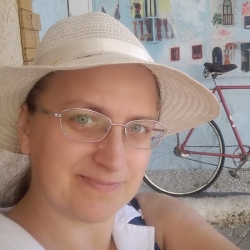



 Every year the number of cars produced is growing, they are becoming more and more affordable, and we can say with confidence: "A car is not a luxury, but just a means of transportation." Therefore, more and more specialists are needed to ensure the smooth operation of our vehicles. That is why the specialty "Maintenance and repair of engines, systems and assemblies of cars" can be called one of the most promising today. The production of automobiles and the complication of mechanisms contributed to the emergence of narrower specialties. Now specialists in this industry are among the most sought after and highly paid. And in many ways, this specialty is very popular among young people who prefer to have a stable job and confidence in the future.
Every year the number of cars produced is growing, they are becoming more and more affordable, and we can say with confidence: "A car is not a luxury, but just a means of transportation." Therefore, more and more specialists are needed to ensure the smooth operation of our vehicles. That is why the specialty "Maintenance and repair of engines, systems and assemblies of cars" can be called one of the most promising today. The production of automobiles and the complication of mechanisms contributed to the emergence of narrower specialties. Now specialists in this industry are among the most sought after and highly paid. And in many ways, this specialty is very popular among young people who prefer to have a stable job and confidence in the future. The specialty " Maintenance and repair of engines, systems and assemblies of cars" at Krasnobakovskiy College makes it possible to obtain a specialist qualification, which allows you to work in many areas. Students gain knowledge and skills in the field of organization of production works, maintenance, operation, repair of cars, study the features and basics of body repair, engine repair, chassis, management of a division of the organization, etc.
The specialty " Maintenance and repair of engines, systems and assemblies of cars" at Krasnobakovskiy College makes it possible to obtain a specialist qualification, which allows you to work in many areas. Students gain knowledge and skills in the field of organization of production works, maintenance, operation, repair of cars, study the features and basics of body repair, engine repair, chassis, management of a division of the organization, etc.




















